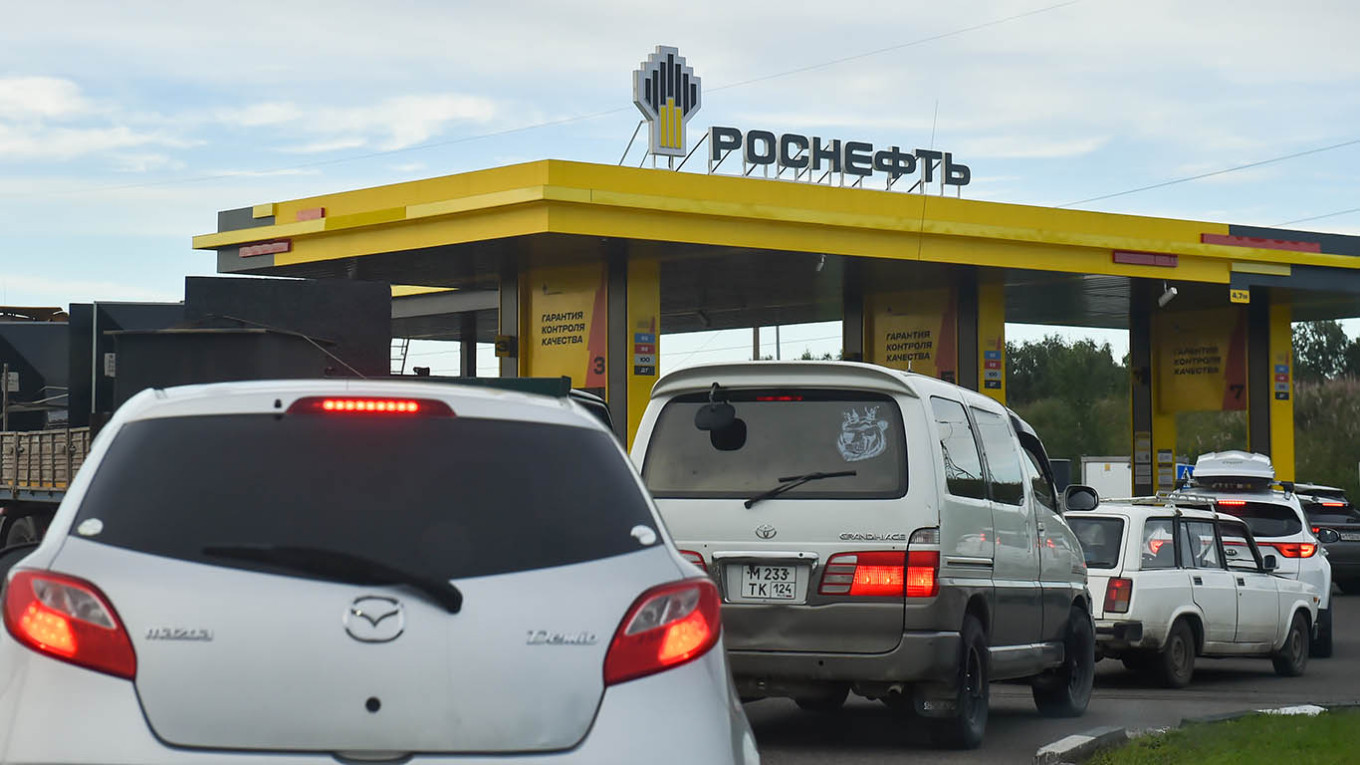Gas stations throughout Russia have begun to impose restrictions on fuel sales as Ukrainian drone attacks on oil refineries worsen the existing supply crisis, as reported by the pro-Kremlin daily, Izvestia.
Fuel stations in various regions are limiting customers to purchases of 10-20 liters of gasoline at a time or are exclusively providing diesel, according to Pavel Bazhenov, the president of the Independent Fuel Union (NTS).
Bazhenov mentioned, “These actions are intended to assist owners of fuel chains in navigating this challenging shortage period and to prevent temporary closures of their gas stations, a situation that has affected some smaller stations in the past.”
The limitations are currently affecting central Russia, the Volga region, the south, and the Far East, as per NTS information.
Fuel sellers in the Moscow, Leningrad, Ryazan, and Nizhny Novgorod areas have confirmed to Izvestia that such limits have been enforced.
Significant corporations have also implemented restrictions; for instance, Lukoil has prohibited canister sales at select Moscow locations and has ceased accepting fuel cards at multiple stations in Nizhny Novgorod.
Data from NTS indicated that by mid-September, fuel shortages were recorded in 21 regions, spanning from Chukotka and Sakhalin in the Far East to Ryazan and Samara in central Russia.
Since August, Ukraine has intensified its drone strikes on Russian refineries, causing at least five plants to be partially or completely offline.
These outages have reduced Russia’s refining capability by 17%, or approximately 1.1 million barrels per day, leading to an increase in wholesale fuel costs, according to Reuters.
On the St. Petersburg International Mercantile Exchange, gasoline prices reached unprecedented levels on Tuesday, with AI-92 reaching 73,600 rubles ($880) per ton and AI-95 trading at 71,100 rubles ($850).
Prices have surged by 40-50% since the beginning of the year, prompting the Russian government to instruct oil firms to tap into reserve capacities, postpone scheduled maintenance, and coordinate fuel rail transport.
Officials are also mulling the extension of a ban on gasoline exports and considering a temporary suspension of diesel exports for all suppliers until the year’s end, according to the state-run TASS news agency.
The current ban on gasoline exports is set to remain in effect until September 30.

